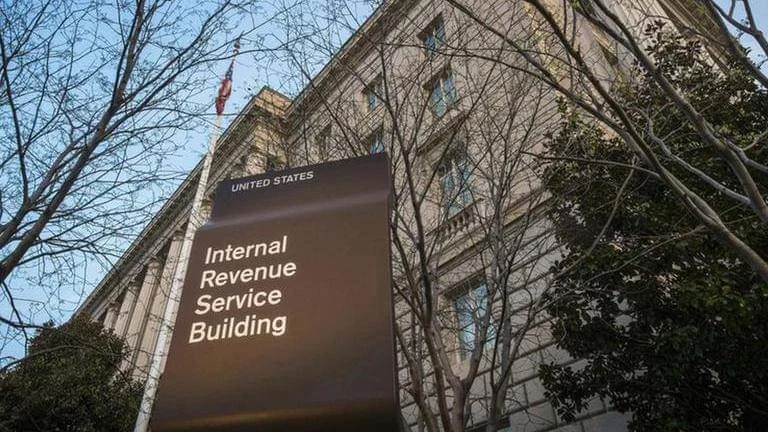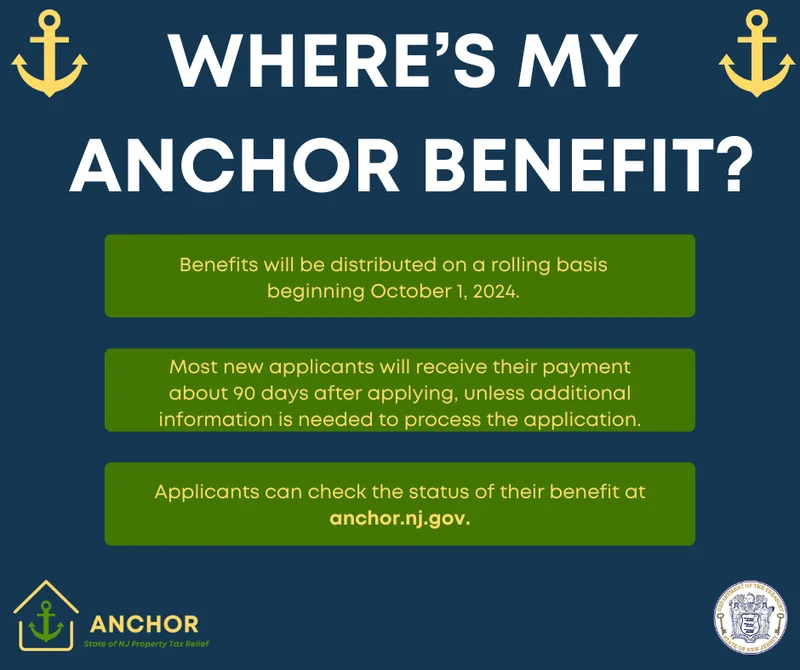IRS Direct Deposit Relief Payments: What This Breakthrough Means for Your Financial Prosperity
Beyond the Buzz: Why the $2,000 Tariff Dividend Idea Is a Glimpse of Tomorrow's Economy
Imagine a world where the wealth generated by global trade doesn't just pool in corporate coffers or government treasuries, but flows directly back to you, the citizen. A world where economic policy isn't just about managing deficits or stimulating markets from the top down, but about empowering individuals directly. Sounds like science fiction, right? Well, President Trump’s recent musings about a potential $2,000 tariff dividend for Americans aren’t just political chatter; they’re a fascinating, if sometimes messy, glimpse into a truly transformative economic paradigm that’s bubbling beneath the surface of our current systems.
When I first heard about this, my mind immediately raced, not to the political horse race, but to the underlying concept. We’re talking about potentially billions of dollars, derived from tariffs—essentially taxes on imported goods—being considered for direct distribution. On November 8th, Trump took to Truth Social, suggesting that "Hundreds of Billions of Dollars currently being sent to money sucking Insurance Companies... BE SENT DIRECTLY TO THE PEOPLE SO THAT THEY CAN PURCHASE THEIR OWN, MUCH BETTER, HEALTHCARE." The next day, he doubled down, declaring, "A dividend of at least $2000 a person (not including high income people!) will be paid to everyone." Forget the specifics for a moment and just let that sink in. The very idea of the government acting like a massive, publicly-owned corporation, distributing its "profits" directly to its "shareholders"—the people—is a radical reframing of how we might fund everything from healthcare to personal savings. It’s like upgrading from dial-up to fiber optics, but for our entire economic operating system, and the sheer potential for individual empowerment is just staggering—it means the gap between today and tomorrow, between economic theory and tangible benefit, is closing faster than we can even comprehend, pushing us towards a future where economic agency is truly in the hands of the many.
Now, I know what some of you are thinking. "Dr. Thorne, aren't there a million hurdles?" And you're absolutely right. Treasury Secretary Scott Bessent was quick to point out that he hadn't even discussed the dividend with Trump, linking any such move to reopening the government. He also noted that a "dividend" could take "lots of forms," from tax decreases to specific deductions on things like auto loans or Social Security. And let’s not forget Senator Josh Hawley's American Worker Rebate Act of 2025, a similar idea floated back in July that would send checks of $600 to $2,400 to families, which, as of yet, hasn't made it through Congress. These aren't just minor speed bumps; they're significant political and logistical challenges. But here's where my perspective shifts: these aren't reasons to dismiss the idea, but rather, the initial design challenges of a groundbreaking new system. Think about the early days of the internet. People scoffed, "Who needs email? It's too complicated!" What they missed was the seismic shift in communication and commerce it would unleash. This tariff dividend, or whatever form it eventually takes, could be the economic equivalent of those nascent internet protocols—a rough, unpolished prototype for a fundamentally different way of distributing national wealth.

The Future of Direct Empowerment
What we're witnessing is a fascinating evolution in how we conceive of economic support, moving beyond the old "stimulus check" model—which, let’s be honest, often felt like a temporary patch in a crisis. A dividend, by definition, is a distribution of profits. A rebate is a refund. A stimulus is an injection to spur spending. Each has its own mechanism and intent, but they all share a common thread: putting money directly into the hands of citizens. This isn't just about short-term relief; it's about a potential long-term architectural change in our economy. Imagine if a portion of all national revenue streams—tariffs, resource extraction, even data monetization—were systematically funneled back to citizens as a regular dividend. What kind of innovation would that spark? What kind of financial freedom would it unlock for you, for your family, for your community?
This isn't just about one politician's proposal; it's about a global undercurrent. We've seen various forms of direct payments, from state-level inflation relief checks in New York, Pennsylvania, Georgia, and Colorado, to New Jersey’s ANCHOR property tax relief. These are local experiments, testing the waters for what could become a more widespread, even national, strategy. It reflects a growing collective consciousness, a subtle but powerful shift, suggesting that perhaps the most efficient and equitable way to manage certain aspects of our economy is to trust individuals with direct financial agency.
Of course, with great power comes great responsibility, and this idea isn’t without its ethical considerations. How do we ensure such a system is fair, that it doesn't exacerbate existing inequalities, or create new ones? What are the implications for inflation, for national debt, for the very structure of our markets? These are crucial questions, and they demand rigorous debate and intelligent design, not just political rhetoric. But to ignore the potential because of the complexity would be like refusing to build a bridge just because you haven't figured out every single rivet. The conversation around these direct payments, whether framed as dividends, rebates, or even a "DOGE dividend" (a fascinating, if nebulous, concept Trump floated in February about using government efficiency savings), is a sign that we're collectively searching for smarter, more human-centric ways to run our economies. The community online, from Reddit threads discussing economic futures to optimistic blog comments, shows a real hunger for these innovative solutions. People are actively imagining what this could mean for their lives, their families, and the kind of prosperity we can build together.
The Spark of a New Economic Era
So, are we getting a $2,000 tariff dividend in 2025? Is Trump giving Americans $2000 tariff dividend payment, stimulus check 2025? The immediate answer is "not yet," and maybe not in that exact form. But that misses the point entirely. The real story isn't about whether this specific proposal passes tomorrow; it's about the profound shift in thinking it represents. It’s a powerful signal that the conversation around direct citizen empowerment, about reimagining how prosperity is shared, is not just theoretical anymore. It's becoming a tangible policy consideration, pushing us to envision an economy that truly works for everyone, not just around them. This isn't just about checks; it's about checking the pulse of a changing world, one that's ready for bolder, more direct solutions. We're at the very beginning of sketching out a future where the economic benefits of our collective efforts might just find their way directly into your pocket, empowering you to build the life you envision.
-

Warren Buffett's OXY Stock Play: The Latest Drama, Buffett's Angle, and Why You Shouldn't Believe the Hype
Solet'sgetthisstraight.Occide...
-

The Business of Plasma Donation: How the Process Works and Who the Key Players Are
Theterm"plasma"suffersfromas...
-

The Great Up-Leveling: What's Happening Now and How We Step Up
Haveyoueverfeltlikeyou'redri...
-

NJ's ANCHOR Program: A Blueprint for Tax Relief, Your 2024 Payment, and What Comes Next
NewJersey'sANCHORProgramIsn't...
-

The Future of Auto Parts: How to Find Any Part Instantly and What Comes Next
Walkintoany`autoparts`store—a...
- Search
- Recently Published
-
- Stock Market 'News': Today's US Market Spin and the 'Live' Updates
- IRS Direct Deposit Relief Payments: What This Breakthrough Means for Your Financial Prosperity
- Bilbao: What the Data Reveals
- Outback Steakhouse Closures: The Financials Behind the Shutdown and Which Locations Are Gone
- The Burger Bubble Just Popped: Why Your Go-To Spot is Next on the Chopping Block
- The Bio-Hacked Human: What the New Science of the Core Reveals About Our Future
- Ore: What It Is and Why It Matters
- Firo: What is it?
- Avelo Airlines: FAA Cuts and the Lakeland Linder Opportunity
- Rocket Launch Today: What Happened and the Mystery Fireball
- Tag list
-
- Blockchain (11)
- Decentralization (5)
- Smart Contracts (4)
- Cryptocurrency (26)
- DeFi (5)
- Bitcoin (29)
- Trump (5)
- Ethereum (8)
- Pudgy Penguins (5)
- NFT (5)
- Solana (5)
- cryptocurrency (6)
- XRP (3)
- Airdrop (3)
- MicroStrategy (3)
- Stablecoin (3)
- Digital Assets (3)
- PENGU (3)
- Plasma (5)
- Zcash (6)
- Aster (4)
- investment advisor (4)
- crypto exchange binance (3)
- bitcoin price (3)
- SX Network (3)
